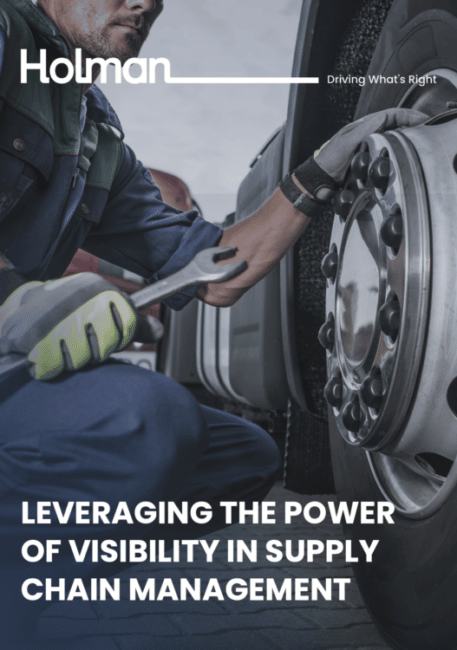VEHICLE ACQUISITION & LEASING
Holman Fleet Purchasing & Leasing
Holman approaches fleet purchasing and leasing as a strategy. We’ll combine your business data with our experience to help you control the process and identify hidden costs by funding acquisitions more efficiently, proactively managing the supply chain, and optimizing your fleet’s lifecycle.
Thank You
Your form has been submitted! One of our team members will reach out to you shortly.
Explore Related ResourcesFunding Options Aligned With Your Financial Goals
The funding choices you make today can impact the profitability of your fleet for years to come. Every business has unique financial needs, and how you fund your fleet portfolio should be tailored to your finances and operation.
Holman combines your business data with economic and consumer-based research to recommend the funding solution that best balances your capital and operating expense demands.

Avoid Supply Chain Disruptions
Avoiding surprises in the fleet purchasing and leasing process means avoiding downtime, lost revenue, and costly disruptions. That’s why Holman controls every link in the supply chain – more so than any other fleet management company – from working directly with OEMs on initial vehicle bids, to upfitting vehicles ourselves, and tracking them throughout the transport process all the way to your business.
We apply the same rigor to upfitting your fleet with our vocational experts who optimize your specifications and prepare an upfitting strategy based on field requirements. Then, whether it’s ship-to or ship-thru, we ensure your delivery strategy is tailored for your business. Finally, you can rely on Holman to administer the initial registration, licensing, and titling of new vehicles so they arrive on time and ready to drive.


Optimize Your Fleet’s Lifecycle
It is challenging to plan and prepare for long-term growth, innovation, and relevance while simultaneously meeting current business demands. Your company has complex fleet requirements that are compounded by changing needs in your business. Holman can help you resolve the challenges impacting your vehicle lifecycle, and lessen the impact of factors outside your control.
We can help you to reduce vehicle depreciation by selecting standardized specifications that meet your job-specific needs, and creating a replacement schedule that removes vehicles from service before their operating costs exceed their value. Our cradle-to-grave expertise empowers you to attain this careful balance with best practices from acquisition to disposal.

“Holman’s exceptional service and expertise streamlined our vehicle acquisition process. By automating our vehicle ordering, they helped to dramatically reduce our administrative costs and order-to-delivery times. I would recommend Holman in a heartbeat.”
WHITEPAPER
Leveraging the Power of Visibility in Supply Chain Management
The faster your vehicles go into service, the sooner they are supporting your objectives. Learn how a fleet vehicle supply chain that is streamlined from end to end through integrated data and processes brings visibility and control to supply chain management.


Fleet Purchasing & Leasing Frequently Asked Questions
- Why should I work with Holman to acquire my vehicles?
For nearly a century, our family owned business has been providing automotive services with a commitment to doing the right thing for our customers, our employees, and our community. Driving What’s Right is at the heart of everything we do. Holman is the only fleet management company in the world that can control your supply chain process from beginning to end, ensuring you have the right vehicles at the right cost exactly when you need them.
- What is an open-end lease?
Open-end leasing means the lessee guarantees the residual value and also shares in any depreciation. The fair market value at the end of the term is estimated at the inception; at the conclusion of the lease, the actual value is determined by either appraisal or sale. If the vehicle is worth less than originally estimated, the lessee is liable for the deficiency; if it is worth more, the excess belongs to the lessee.
- What is depreciation?
Depreciation is often the greatest expense of owning a vehicle during the first several years of its lifecycle; it includes the purchase price, plus any acquisition charges, minus the resale value, net any selling expenses.
- What is a residual?
A residual is the projected value of a vehicle at the end of its lease or life cycle, based on months on lease and mileage expected.
- What is replacement planning?
Replacement planning is a business plan that takes into account mileage, months in service, fuel cost per gallon and other factors to identify the point at which a vehicle’s operating costs exceed the value it is producing for a company, prompting the start of the remarketing process.
- What is an OEM?
In the fleet industry, original equipment manufacturer (OEM) refers primarily to automotive manufacturers, such as the U.S. “Big Three” (Stellantis, Ford, and General Motors), also BMW, Mercedes-Benz, Honda, Nissan, Toyota, Volkswagen, and more.
- What is an upfitter?
An upfitter is a company that designs, manufactures and installs aftermarket equipment on vehicles for specialized work functions. Popular applications include oil and energy, telecom, utility, and railroad industries.
- What’s the difference between ship-thru and ship-to?
Ship-thru is the transportation process in which the OEM ships a vehicle to the upfitter, then the upfitter returns it to the OEM transportation system to be delivered to the buyer. Ship-to is when the OEM ships a vehicle to the upfitter, then either the upfitter, a drive away company, or a local dealer delivers it to the buyer. Also referred to as a drop-ship, this method is ideal for large specialty equipment such as cranes, bucket trucks, and other equipment for medium and heavy-duty units.
Related Services

Vehicle Management
Control fuel costs, manage maintenance and repairs, and keep your vehicles inspected, licensed, and compliant.

Insurance & Risk Management
Determine the right level of insurance and the right kinds of coverage for your unique business.

Electrification
Transition to electric vehicles in a way that makes sense for your specific fleet.

